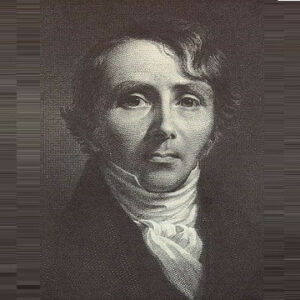William Ellery was a merchant-turned-lawyer who co-signed the famous United States Declaration of Independence with Stephen Hopkins on behalf of Rhode Island. Rhode Island was one of the colonial states that had not been subjected to as much oppression by the British government as other states such as Massachusetts and New York had. Thus, while the patriotic passions of those from Rhode Island were not as strong as those from more oppressed states, the state’s representatives backed the American Revolution. Even though William Ellery entered politics late, he played a critical role in the revolution. He began his career as a merchant before joining the public service as a customs collector. He later worked as a Clerk of the Rhode Island General Assembly, where he gained experience with legal procedures and deeds. He decided to put his newly acquired knowledge to good use and enrolled in a law school. He entered the legal profession relatively late in life: at the age of 43. He also began actively participating in political activities at this point, joining the Sons of Liberty. In 1776, he served as a delegate from Rhode Island to the Continental Congress and signed the Declaration of Independence.
Childhood & Adolescence
William Ellery was born in Rhode Island as the second son of Elizabeth Almy and businessman William Ellery Sr.
His father, a graduate of Harvard College, educated his son at home. He also attended Harvard College, where he excelled in Greek and Latin and graduated in 1747 at the age of twenty.
Career of William
He began his career as a merchant, working in his father’s business alongside him. He gained knowledge of prevalent trade and shipping practices.
He was appointed a Naval Officer of the Colony of Rhode Island based on his shipping knowledge. He became a Master Mason in the First Lodge in Boston after a brief stint.
In 1750, he was appointed Clerk of the Court, where he gained knowledge of legal procedures and practices. He held this post until 1763.
He was instrumental in co-founding the Rhode Island College in his city in 1764, serving as one of its incorporators.
When The Stamp Act, a tax on British America’s colonies, was passed in 1765, it was met with widespread opposition by patriots. Ellery and others organized a march in Rhode Island to demonstrate their opposition to the Act.
He decided to broaden his legal knowledge gained while working as a court clerk and began studying law. In 1770, he passed the examinations and was admitted to the bar.
In the 1770s, he also became involved with the Sons of Liberty, a group of patriots dedicated to defending colonists’ rights.
In 1774, the British government enacted a series of disciplinary laws that stripped Massachusetts of many of its government and historic rights. The colonists vehemently opposed these laws, dubbed “Intolerable Acts.” Ellery was instrumental in the resistance movement.
By the fall of 1774, emotions were running high in the First Continental Congress over the demand for independence from British rule. Ellery, despite not being a congressman, was a strong proponent of independence and believed that the colonies were capable of self-government.
As a lawyer, he knew several influential people in Rhode Island and possessed the resources necessary to gather vital information about the British Parliament. He was enraged by the British’s callous disregard for the welfare of the people in America.
By 1775, the American Revolution had begun, and on May 10th, the Second Continental Congress convened. As an ardent supporter of independence, he informed Congress that he would accept the position of delegate in the event of a vacancy.
In early 1776, one of Rhode Island’s delegates, Samuel Ward, became ill and died of smallpox. The Rhode Island Legislature held a special election to elect his successor, ultimately electing William Ellery.
He was a delegate to Philadelphia’s Second Continental Congress. On July 2, 1776, he voted in favor of independence. On August 2, 1776, he and the majority of the other signers penned the United States Declaration of Independence.
He was appointed to the Marine Committee following independence due to his prior experience in shipping. As a congressman, he served on a number of committees during his tenure.
In 1778, he signed the Articles of Confederation, the United States’ first constitution, on behalf of Rhode Island and Providence Plantations.
In 1779, he was appointed a member of the Committee to settle diplomatic disputes due to his extensive knowledge, experience, and negotiation skills. He served in the Congress until 1786.
By 1785, he had established a reputation as an abolitionist and backed Rufus King’s efforts to abolish slavery throughout the United States.
In 1790, under the new constitution, he was appointed Collector of Customs for the Newport District. He remained in this position for the remainder of his long and fruitful life.
Significant Works of William
He is best known as one of the 56 signers of the United States Declaration of Independence in 1776. He was not originally a member of the Continental Congress, but had been appointed to fill the vacancy left by a deceased delegate.
Personal History and Legacies
In 1750, he married Ann Remington. Seven children were born to the couple, five of whom survived to adulthood. Ann was assassinated in 1764.
In 1767, he married Abigail Cary. He had ten more children with her, the majority of whom died in infancy. In 1793, his second wife died.
He lived a long and productive life, spending his retirement years with his numerous children and grandchildren. On 15 February 1820, he died of natural causes at the ripe old age of 92.
Estimated Net Worth
The estimated net worth of William is about $5million.
Trivia
William Ellery Channing, the famous Unitarian preacher, is one of his descendants. He was one of three Declaration of Independence signers who lived into his nineties.


